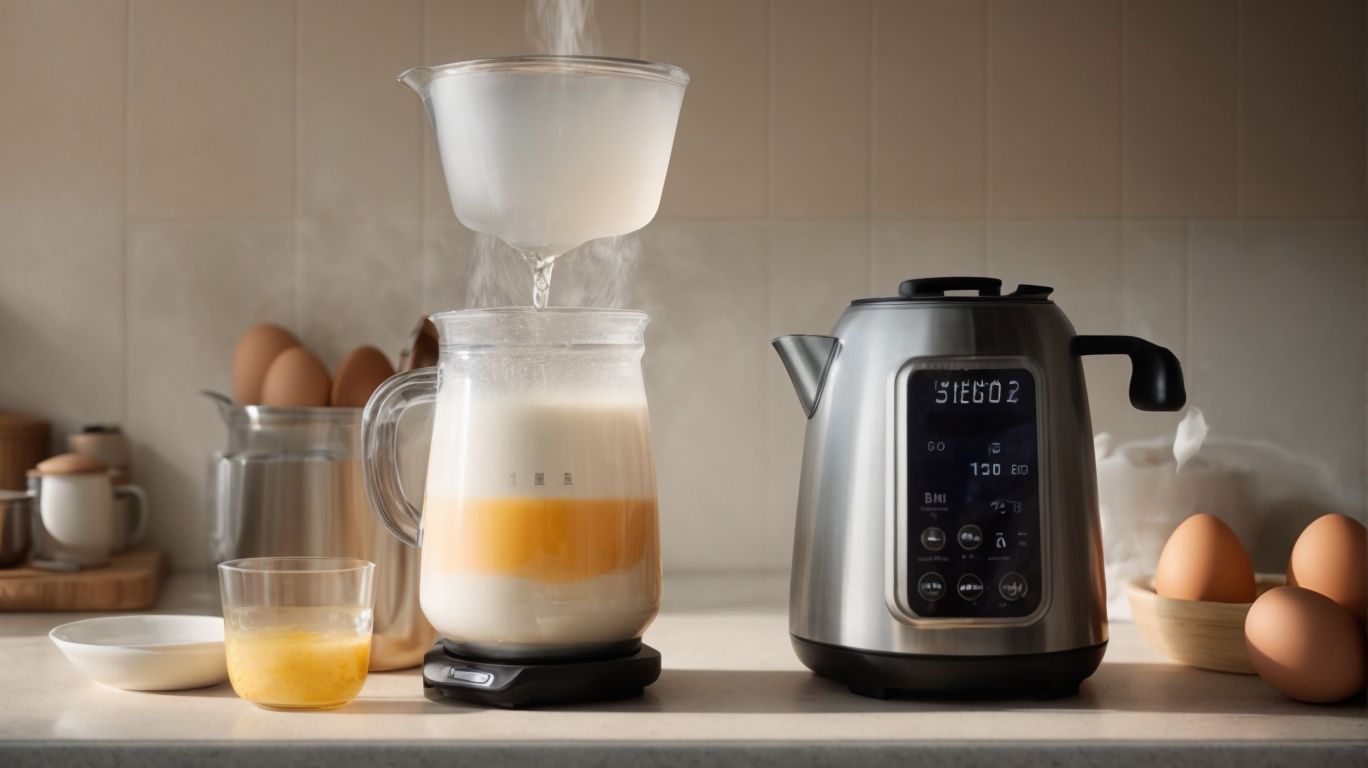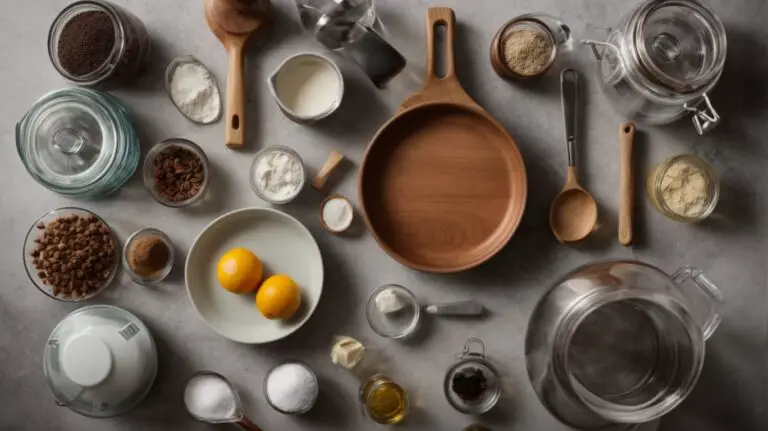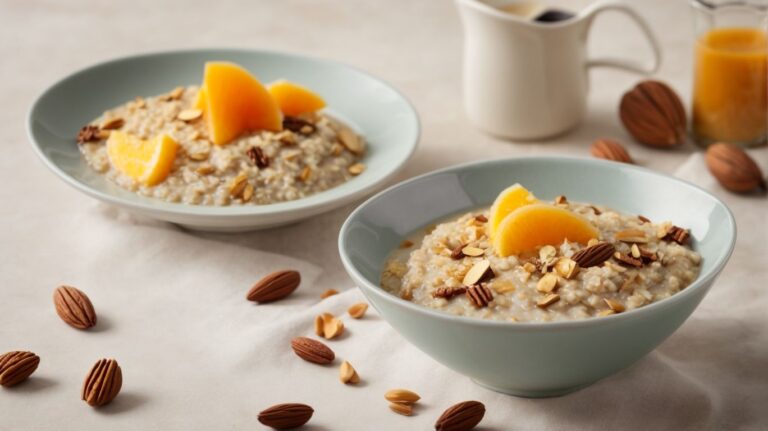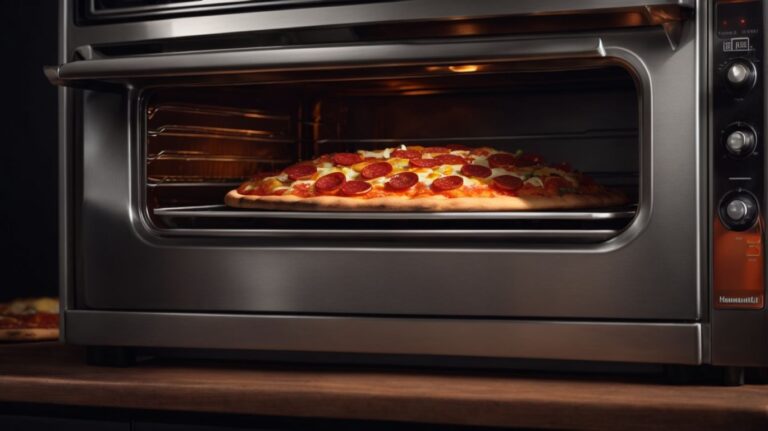How to Cook Hard Boiled Eggs Without Cracking?
Are you tired of ending up with cracked hard boiled eggs every time you attempt to make them?
We delve into the reasons behind why hard boiled eggs crack, including temperature shock, uneven heating, and the age of the eggs.
Learn valuable tips on how to prevent your eggs from cracking, such as starting with room temperature eggs, using a pot with a lid, and adding salt or vinegar to the water.
Discover tricks on achieving the perfect hard boiled eggs and cooking them without any cracks!
Key Takeaways:
Why Do Hard Boiled Eggs Crack?
The cracking of hard-boiled eggs can be attributed to various factors, including temperature shock, uneven heating, the age of the eggs, and sudden pressure changes.
Temperature shock is one of the common reasons behind hard-boiled egg cracking. When eggs are exposed to drastic changes in temperature, the shell expands or contracts rapidly, leading to cracks. For example, if you place a hot boiled egg directly into cold water, the sudden shift in temperature can cause the egg to crack.
Uneven heating is another culprit for cracked hard-boiled eggs. If the eggs are not heated uniformly during the boiling process, stress points can develop on the shell, making them vulnerable to cracking.
The age of the eggs also plays a role in their susceptibility to cracking. Fresh eggs have firmer whites, making them less likely to crack during boiling compared to older eggs with thinner shells.
Pressure changes, especially rapid changes in pressure, can cause hard-boiled eggs to crack. For instance, if you are boiling eggs at high altitudes where the atmospheric pressure is lower, the pressure inside the egg can differ, leading to cracks.
Temperature Shock
Temperature shock is a common cause of hard-boiled eggs cracking, especially when using room temperature eggs that are abruptly exposed to boiling water.
This sudden change in temperature causes the egg whites to expand rapidly and create internal pressure, leading to cracks in the shell. To prevent this, it is recommended to start with cold eggs directly from the refrigerator to minimize the temperature differential. You can also gradually raise the temperature of the eggs by placing them in warm water for a few minutes before boiling.
Uneven Heating
Uneven heating during the boiling process can lead to hard-boiled eggs cracking, highlighting the importance of using a pot with a lid to ensure consistent heat distribution.
This issue arises due to the heat not being uniformly distributed in the pot, causing different parts of the egg to expand at different rates, leading to stress and ultimately cracking.
By using a pot with a lid, the heat is trapped within the pot, creating a more controlled environment where the eggs are surrounded by consistent heat, reducing the risk of cracking.
Age of the Eggs
The age of the eggs plays a crucial role in their tendency to crack when hard-boiled, with fresher eggs being more prone to cracking unless vinegar is added to the boiling water.
When eggs are fresh, the inner membrane tends to cling tightly to the shell, making them more susceptible to cracks during the boiling process. The addition of vinegar helps in two ways: it lowers the pH level, which makes the egg white coagulate quicker, and it also helps weaken the bond between the membrane and the shell, reducing the chances of cracks.
Handling different aged eggs appropriately is crucial to prevent cracking. For fresh eggs, adding vinegar to the water before boiling is key. For older eggs, it’s recommended to let them sit at room temperature for a while to reduce thermal shock and minimize cracking. Using a gentle cooking method and avoiding sudden temperature changes can also help preserve the integrity of the eggs.
Sudden Pressure Changes
Sudden pressure changes, such as removing the lid of the pot containing boiling water, can cause hard-boiled eggs to crack due to rapid temperature differentials.
When exposed to a sudden temperature shift, the outer shell of the egg either contracts or expands more rapidly than the inner contents, leading to cracks in the shell. To avoid this, it is essential to introduce the eggs gradually to varying temperatures. Placing eggs in cold water and then heating them slowly can help equalize the temperature inside and outside the egg, minimizing the risk of cracking.
How to Prevent Hard Boiled Eggs from Cracking?
Preventing hard-boiled eggs from cracking requires several key steps, including starting with room temperature eggs, using a pot with a lid, adding salt or vinegar to the water, following cooking instructions, cooling eggs quickly in ice water, and storing them properly.
Another valuable tip is to gently place the eggs in the pot before adding the water to avoid sudden temperature changes that could cause cracking. It’s essential to bring the water to a gentle boil, then reduce the heat to simmer for consistent cooking.
Using older eggs also helps prevent cracking, as fresher eggs have firmer whites that are more prone to cracking during boiling. Make sure to carefully follow the recommended cooking times to prevent overcooking, which can also lead to cracks in the eggshells.
After boiling, transfer the eggs to an ice water bath for rapid cooling, which helps in shrinking the egg inside the shell and easing the peeling process. Store the hard-boiled eggs in the refrigerator in a covered container to maintain freshness and prevent moisture loss.
Start with Room Temperature Eggs
Starting with room temperature eggs can help prevent hard-boiled eggs from cracking by reducing the temperature differential between the eggs and the boiling water.
This method is crucial in maintaining egg integrity during the cooking process. When cold eggs are exposed to boiling water, the sudden temperature change can cause the eggshell to crack due to thermal shock. By allowing the eggs to come to room temperature beforehand, the gradual warming helps minimize this shock and prevents cracking.
Room temperature eggs also cook more evenly, ensuring that the yolk and whites set at the same rate, resulting in a perfectly cooked hard-boiled egg. This technique can make peeling the eggs easier after cooking, as the albumen (egg white) doesn’t adhere as strongly to the shell when cooked from room temperature.
Use a Pot with a Lid
Utilizing a pot with a lid while boiling eggs is essential to maintain consistent heat distribution and prevent cracking during the cooking process.
When selecting a pot for boiling eggs, opt for one that is large enough to hold the eggs in a single layer. This helps in ensuring they cook evenly without overcrowding. Additionally, choosing a pot with a well-fitting lid is crucial to trap the steam inside, aiding in the cooking process and reducing the chances of the eggs cracking. A transparent lid can be beneficial as it allows you to monitor the progress without the need to lift the lid and release heat.
Add Salt or Vinegar to the Water
Adding salt or vinegar to the water before boiling the eggs can help prevent cracking by strengthening the eggshell and stabilizing the egg white.
When incorporating salt, a common ratio is one tablespoon per quart of water. This helps the egg white to coagulate more quickly, reducing the chances of it leaking through any cracks in the shell.
If using vinegar, a few tablespoons added to the water can create a protective layer around the egg, preventing water from seeping in during cooking.
These simple additions not only enhance the boiling process but also contribute to easier peeling post-cooking, making your hard-boiled eggs a breeze to prepare.
Gently Lower Eggs into Boiling Water
Carefully lowering the eggs into the boiling water can help prevent cracking by minimizing sudden pressure differentials and ensuring a gentle cooking process.
This technique is crucial as it allows the eggs to gradually adjust to the temperature, reducing the risk of the shells cracking due to thermal shock. To execute this method effectively, gently place the eggs in a slotted spoon or lower them in with a ladle, allowing them to sink slowly into the boiling water. Ensuring a smooth descent will maintain the structural integrity of the eggs and result in perfectly boiled eggs.
Use a Timer and Follow Cooking Instructions
Using a timer and following precise cooking instructions is crucial to achieving perfectly hard-boiled eggs without the risk of cracking.
When preparing hard-boiled eggs, timing is the key to success. To start, place your eggs in a single layer in a pot and cover them with cold water by about an inch. Bring the water to a boil and then immediately remove the pot from the heat.
Let the eggs sit in the hot water for the desired time based on how you prefer your yolks – typically around 8-10 minutes for firm yolks. Remember to monitor the cooking process closely and then promptly transfer the eggs to an ice water bath to stop the cooking process. This method ensures easy-to-peel eggs with creamy yolks every time.
Cool Eggs Quickly in Ice Water
Rapidly cooling hard-boiled eggs in ice water after cooking can help prevent cracking and facilitate easier peeling by stabilizing the egg structure.
When hard-boiled eggs are rapidly cooled in ice water, the temperature shock halts the cooking process instantly, preventing further expansion that can lead to cracks on the egg surface. This rapid cooling also causes the egg membrane to contract, making it easier to separate the egg from the shell during peeling. Immersing the eggs in ice water helps in creating a temperature difference between the egg and the shell, aiding in detachment. This crucial step plays a significant role in achieving perfectly cooked and presentable hard-boiled eggs.
Store Hard Boiled Eggs Properly
Properly storing hard-boiled eggs in the refrigerator can help maintain their freshness, texture, and prevent unnecessary cracking or drying out.
In terms of hard-boiled eggs, it’s crucial to keep them in the fridge to minimize the risk of bacterial contamination and retain their quality. Placing the hard-boiled eggs in a tightly sealed container or plastic wrap prevents them from absorbing strong odors and flavors from other foods in the refrigerator. Remember to mark the container with the date of preparation for easy tracking. It is recommended to consume hard-boiled eggs within a week for the best taste and quality preservation. Storing eggs correctly also aids in maintaining their protein content and essential nutrients.
Tips and Tricks for Perfect Hard Boiled Eggs
Achieving perfect hard-boiled eggs involves utilizing various tips and tricks such as piercing the eggs before boiling, using an egg timer, a steamer basket, or an Instant Pot.
Before you start the cooking process, ensure the eggs are at room temperature for more even cooking. Then, gently pierce a small hole at the wider end of each egg to prevent cracking when boiling.
To achieve the perfect firmness, boil the eggs for 9-12 minutes, depending on your desired consistency. For an easier peeling experience, shock the boiled eggs in an ice bath immediately after cooking.
If using a steamer basket, place the eggs in a single layer and steam for about 10-12 minutes. Alternatively, the Instant Pot is a convenient option – just add water, place the eggs on the trivet, seal the lid, and set to cook under high pressure for 5-5-5 (5 minutes high pressure, 5 minutes natural release, 5 minutes ice bath).
Pierce the Eggs Before Boiling
Piercing the eggs with a pin before boiling can prevent cracking and facilitate easier peeling by releasing air and reducing pressure inside the shell.
By puncturing the eggshell, the tiny hole allows steam to escape during the boiling process, preventing the egg from bursting apart. This simple but effective technique helps maintain the structural integrity of the egg while it cooks, ensuring a neat, evenly cooked final product.
The release of pressure inside the egg helps in detachment of the inner membrane from the shell, making the peeling process a breeze. This means no more frustrating struggles with stubborn shell fragments clinging to the white and ruining the presentation of your dish.
Use an Egg Timer
Employing an egg timer during the boiling process ensures precise cooking times, reducing the risk of overcooking or undercooking hard-boiled eggs.
Using an egg timer not only guarantees perfectly cooked eggs but also provides convenience and consistency in your cooking routine. By timing the process accurately, you can achieve that ideal firm-yet-creamy yolk texture every time. For best results, it is recommended to place the eggs in a single layer at the bottom of the pot and cover them with at least an inch of water. Once the water boils, set your timer accordingly following the preferred doneness from soft to hard. This simple tool takes the guesswork out of boiling eggs, making it a must-have for any kitchen.
Use a Steamer Basket
Utilizing a steamer basket for boiling eggs can help prevent direct contact with the boiling water, reducing the risk of cracking and leading to more evenly cooked eggs.
When selecting a steamer basket, opt for one that fits securely in your pot and has a stable base to hold the eggs without tipping over. The basket allows steam to circulate and cook the eggs gently, resulting in a tender texture without the need for constant monitoring. Using a steamer basket is a healthier option compared to traditional boiling methods, as it retains more nutrients in the eggs.
Use an Instant Pot
Leveraging an Instant Pot for hard-boiled eggs offers a convenient and efficient cooking method that can help prevent cracking and ensure consistent results.
With its sealed cooking environment, the Instant Pot retains moisture, making it ideal for preparing hard-boiled eggs without the risk of the shells cracking. The pressure cooking function allows for a quicker cooking process compared to traditional methods, saving time and effort. The Instant Pot’s precise temperature control ensures that the eggs are cooked to perfection every time. The versatility of the appliance enables users to customize the cooking settings based on their preferences, whether they prefer soft, medium, or hard-boiled eggs.
Conclusion
Mastering the art of preparing hard-boiled eggs without cracking involves understanding the factors contributing to egg integrity and implementing effective cooking and handling techniques.
One crucial aspect to keep in mind is to start by using eggs that are not too fresh, as older eggs are easier to peel after boiling. Once the eggs are ready, cooling them in an ice bath promptly helps in preventing the yolks from turning green due to overcooking. Properly storing hard-boiled eggs in the refrigerator, shelled to maintain freshness, can extend their shelf life for up to a week. Hard-boiled eggs are a rich source of protein and essential nutrients, making them a healthy snack option for a fulfilling diet.
Frequently Asked Questions
Can I cook hard boiled eggs without cracking them?
Yes, it is possible to cook hard boiled eggs without cracking them. There are a few simple techniques you can follow to ensure your eggs stay intact during the cooking process.
What is the best method for cooking hard boiled eggs without cracking them?
One of the best methods for cooking hard boiled eggs without cracking them is to start with room temperature eggs and gently lower them into already-boiling water. This helps to prevent any sudden changes in temperature that could cause the eggs to crack.
How can I prevent my hard boiled eggs from cracking while cooking?
To prevent cracking, it’s important to not overcrowd the pot and to make sure the eggs are evenly spaced. You can also add a tablespoon of vinegar to the water, which helps to strengthen the eggshells.
Can I use older eggs to cook hard boiled eggs without cracking?
Yes, older eggs are actually better for cooking hard boiled eggs without cracking. As eggs age, they develop a small air pocket between the shell and the egg white, which helps to cushion the egg and prevent it from cracking.
Is there a specific cooking time for hard boiled eggs to prevent cracking?
The cooking time for hard boiled eggs will vary depending on the size of the eggs and the level of doneness you prefer. Generally, you can cook a medium sized egg for 8-10 minutes to achieve a fully cooked, but not overcooked, hard boiled egg.
Are there any other tips for cooking hard boiled eggs without cracking?
Another tip for preventing cracked eggs is to let them cool down slowly after cooking. Placing the eggs in an ice bath or running them under cold water for a few minutes before peeling can also help to prevent any cracks.






